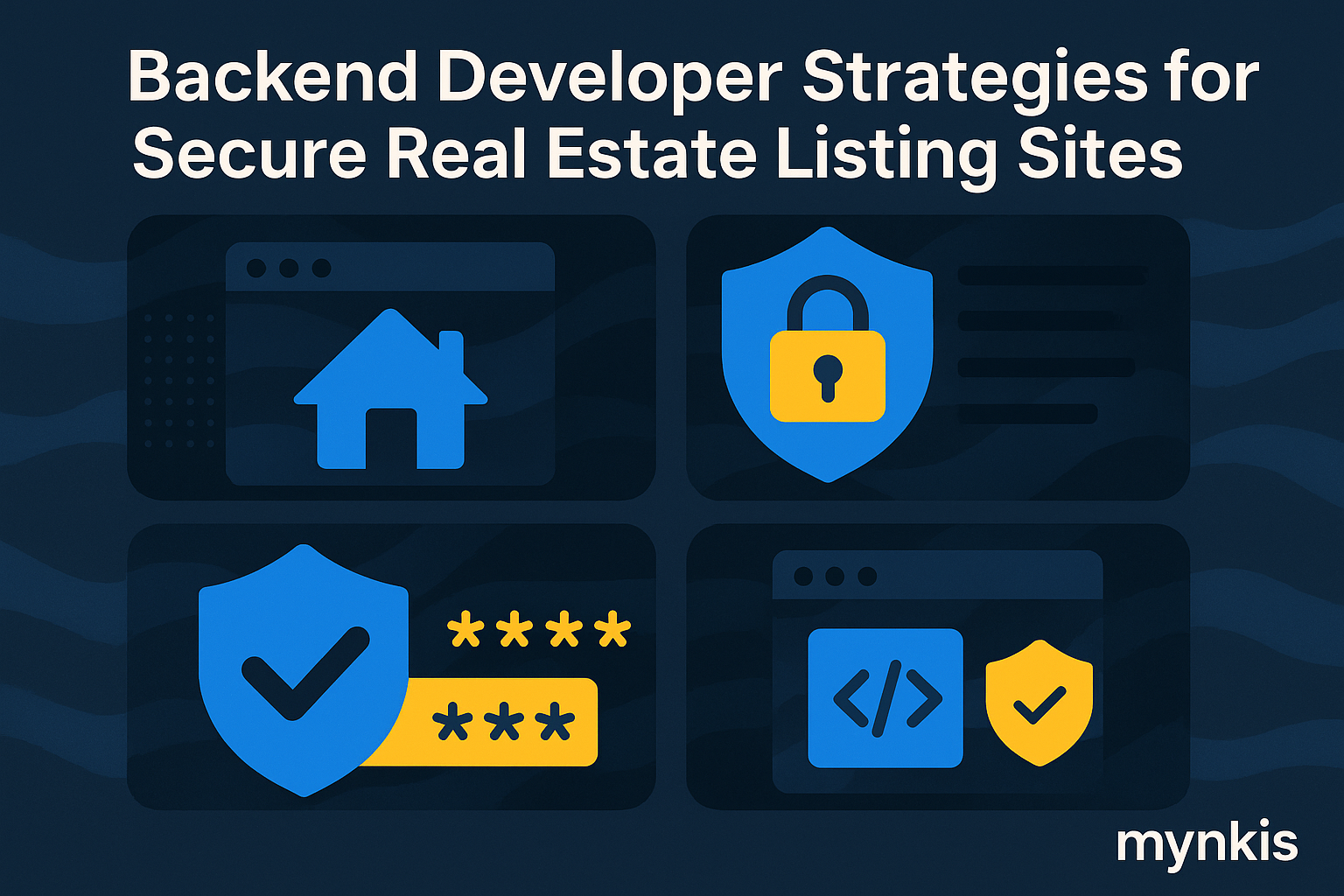Schedule a Demo
For brokers aiming to boost their property listing websites' visibility on search engines, security is not merely an afterthought; it's a pillar that supports credibility and trust. Secure sites assure users that their sensitive data is safe, fostering an environment ripe for increased engagement and better search rankings for local queries. In my collaborations with tech teams who develop for real estate sectors, I've witnessed firsthand how a secure backend can be a differentiator for firms trying to stand out in a competitive digital real estate market.
Protecting your backend against intrusions is key. That means regular updates to your systems to fix vulnerabilities and mitigate the risks from hackers. Personally, when designing solutions for our clients, I ensure that the code is auditable, meaning anyone can review it to ensure compliance with security standards.
To any backend developer working on such sites, encryption should be non-negotiable. Use HTTPS across your site; it not only secures the data flowing between user and server but has become a critical factor in SEO rankings. And if you're managing sensitive client data on your real estate listing platform, also consider end-to-end encryption for an added security blanket.
I've seen many instances where simple, yet overlooked, user authentication setups have led to significant breaches. Implement two-factor authentication (2FA) as a standard to safeguard user accounts on your listing platform. It's not just about basic username and password anymore; integrate biometric data, like fingerprint or facial recognition, if possible, to step up the authentication game.
Remember, authorization is as important as authentication. You need to define detailed user roles to ensure they access only what they need. In my experience in the field, there have been cases where leaks of sensitive information—such as potential buyers' financial details—happened simply because those permissions weren't granular enough.
Web applications need to react swiftly to threats. Continuous monitoring and logging are essential practices for any backend developer. Real-time alerts from monitoring systems can detect suspicious activities. As part of my oversight on projects involving real estate listing websites, setting up these systems has proven vital in preventing attacks, assuring me that brokers can truly rest knowing their platform is under watch 24/7.
Regular security audits are a cornerstone of secure site development. Beyond mere compliance, they're about understanding your system inside out so you can shore up any weaknesses before they are exploited. Collaborative auditing, involving multiple stakeholders including independent auditors, ensures your real estate listing platform meets the highest security benchmarks.
In secure coding, safeguarding every user input is crucial to keep SQL injection and cross-site scripting at bay. Implementing stringent input validation is not for scaremongers; it's practical security—like double-locking your door. For a developer specializing in secure sites, strict input validation goes beyond basic form sanity checks and into crafting defenses that smart attackers can't easily circumvent.
APIs often go unnoticed in the quest to bolster security. Yet, they are a high-value target for security threats. In fact, they represent the point at which external services often interface directly with your platform. Designing APIs with robust security protocols isn’t just responsible—it sets a platform apart in industries, like real estate, known for handling plenty of sensitive personal data.
One mustn't forget the delicate balance between a seamless user experience and stringent security measures. During implementations, I've made sure to interact with end users, taking their feedback into account to fine-tune the user interface without compromising security. A property listing website that receives high user ratings, thus improving SEO positioning, thrives not just because of its features but due to the trust instilled by secure navigability.
The security landscape evolves continuously, with developers needing to keep their systems patched and updated. At times, it feels like a race against cyber threats, but prompt responses to vulnerabilities are key. I urge backend developers to treat updates as part of the ongoing life of a project— something that real estate brokers value since it affects their brand’s reputation.
A culture of security awareness breathes life into the technical strategies. Continuous training initiatives for a development team can lead to discovering new security practices beneficial for real estate platforms. As I mentor young developers, I see this education as transforming not just their coding but also how they perceive their role in promoting client-focused security practices.
Finally, developer compliances like GDPR set industry baselines to follow, helping to avoid hefty fines for brokers whose client data you manage. Awareness and mastery of such standards meant following extra code reviews during project pushes that specifically targeted data protection considerations. Being a couple of steps ahead in compliance instills confidence—not only from users but from auditors as well.
Building and maintaining trust is at the heart of any enduring relationship. You, as a backend developer tasked with advancing security in property listing sites, are literally guarding the gateways that top client engagement's basketbasketfrized client relationships. My experiences have taught me intimately that understanding what real estate clients truly worry about- transactional security in buying or selling properties -helps me tailor genuine, business-critical solutions created around security.
